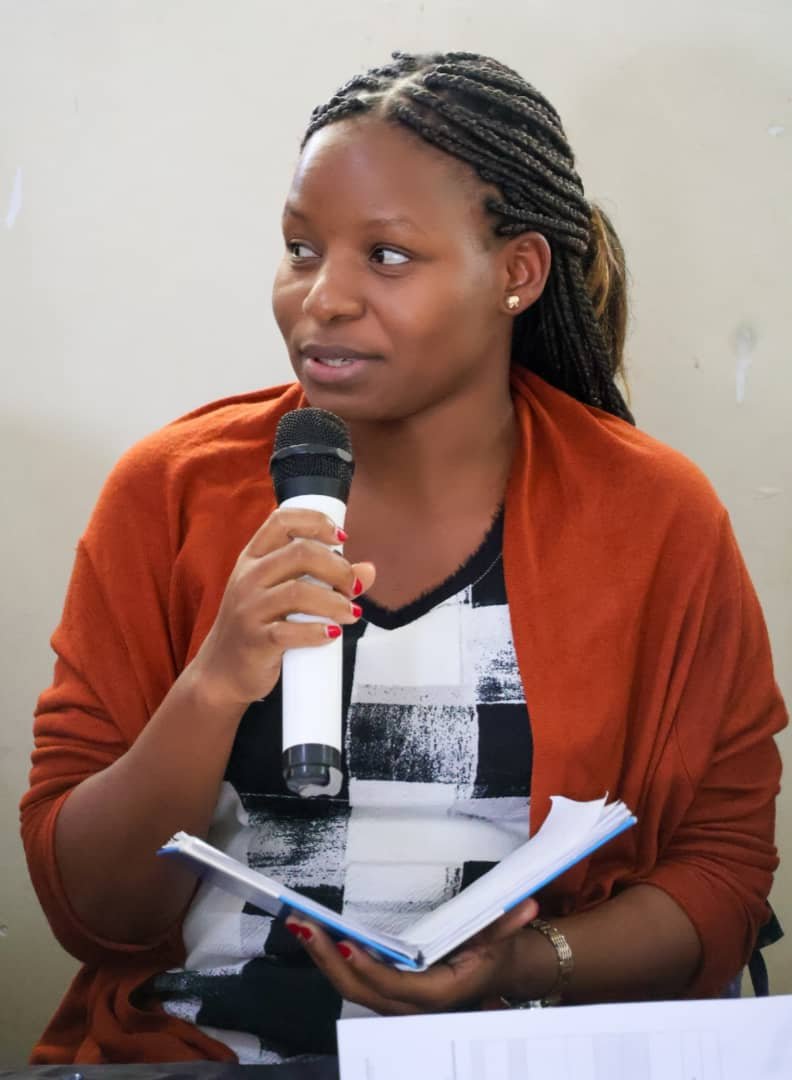In the spirit of cross-cultural learning and youth-led transformation, Angelina Yohana of Tanzania’s Children Education Society (CHESO), an exchange fellow under the Young African Leaders Exchange Program by the Norwegian Agency for Exchange Cooperation (Norec), immersed herself in Kenya’s dynamic model of community dialogue.
Through MIDRIFT HURINET’s peace and security forums, she witnessed how structured engagement between youth, security actors, and community leaders can dismantle mistrust, foster accountability, and inspire collaborative problem-solving.
From grassroots dialogues addressing gender-based violence to participatory platforms where young people influence local security priorities, Angelina saw firsthand that sustainable peace emerges when communities treat youth not as peripheral voices but as central architects of solutions.
When she returns to Tanzania, her vision is to adapt these Kenyan lessons, embedding inclusive dialogue, evidence-based advocacy, and community-centered accountability into local structures, transforming them into a blueprint for youth-led peacebuilding that bridges divides and nurtures trust.
Through its deliberate and inclusive dialogue sessions, MIDRIFT HURINET has redefined how youth engage with peace, security, and accountability in their communities.
These interventions go beyond conventional forums by creating safe, participatory spaces where young people, security actors, and community leaders confront complex issues, from gender-based violence to electoral tensions, through honest conversation and collaborative problem-solving.
By equipping youth with negotiation skills, human rights knowledge, and conflict resolution strategies, these dialogues have transformed them from passive observers into proactive agents of accountability.
The cross-cultural exchange embedded in these sessions not only broadens perspectives but also strengthens regional solidarity, as lessons learned in Nakuru find resonance in neighboring countries.
MIDRIFT HURINET’s approach has shaped a new generation of youth advocates, capable of challenging systemic injustices, influencing policy, and fostering trust between communities and the institutions meant to serve them, anchoring peace not as a distant aspiration, but as a lived, shared responsibility.
Ms.Yohana opines,
“One of the standout features of the dialogue forums was its commitment to institutionalizing public dialogue. By creating regular, structured spaces for citizens to voice concerns and share ideas with authorities, the process fosters transparency, trust, and accountability. Community members, especially the youth, were able to share their questions and views with the police, who in turn responded to the issues raised.”
She added, “When communities feel heard, they are more likely to collaborate with law enforcement, helping to reduce tensions and enhance public safety.
The dialogue emphasized the importance of leveraging youth as equal partners in peacebuilding rather than viewing young people solely as beneficiaries or potential risks, as young people have been profiled for insecurity issues surrounding their communities.
Youth were treated as co-creators of security solutions.
Their insights, energy, and digital fluency make them invaluable contributors to community resilience.
Talk alone isn’t enough.
The forums demonstrated that dialogue must be paired with tangible peacebuilding initiatives such as community patrols, conflict resolution training, and civic education.
Law enforcement officials expressed concern that insecurity persists partly because some parents fail to cooperate with police when their youth are involved in criminal activities.
They emphasized the need for greater support from both parents and the wider community. These initiatives help translate conversation into action, reinforcing the impact of public engagement.”
Ms.Yohana says Tanzanian youth can draw powerful lessons from MIDRIFT HURINET’s dialogue forums in Kenya, which have redefined how communities and security actors collaborate for peace, accountability, and inclusive governance.
The principle of open dialogue, where community members, youth, and government officials sit at the same table to deliberate on pressing security concerns, builds transparency and mutual trust.
For Tanzanian youth, adopting such models could strengthen existing peace structures by institutionalizing regular community-police forums that not only demystify policing but also humanize the relationship between law enforcement and citizens.
MIDRIFT HURINET’s approach has demonstrated that when youth are empowered to co-design local security initiatives, they transition from passive participants to active architects of peace, shaping solutions that reflect local realities.
These platforms equip young people with practical skills in negotiation, accountability, and civic leadership, enabling them to inspire peers.
By Jacob Karani



